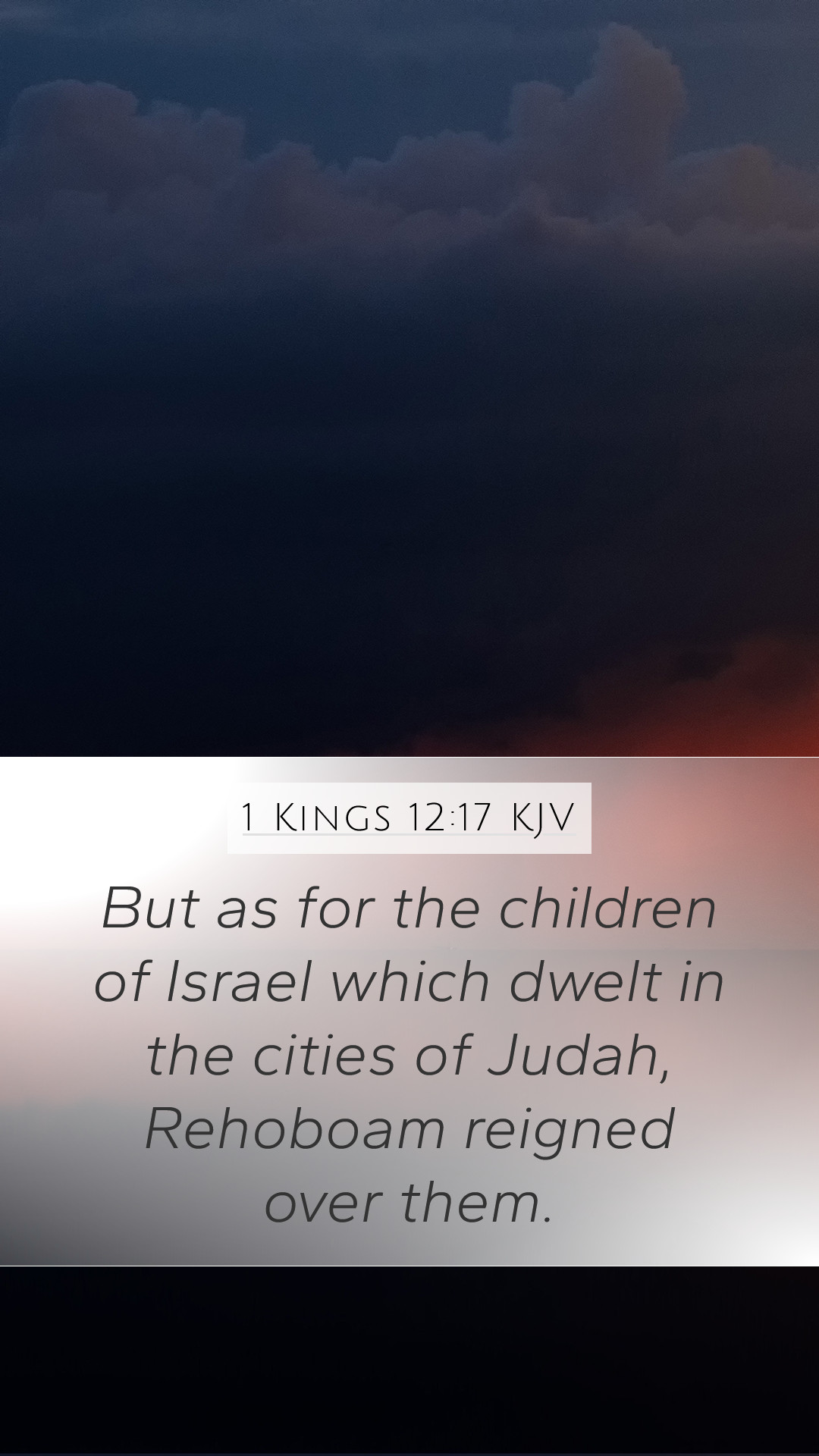Understanding 1 Kings 12:17
1 Kings 12:17 states: "But as for the children of Israel who dwelt in the cities of Judah, Rehoboam reigned over them."
This verse signifies a critical moment in the history of Israel's monarchy, showcasing the division between the northern kingdom of Israel and the southern kingdom of Judah after Solomon's reign.
Overview of the Context
Following the death of King Solomon, his son Rehoboam ascended to the throne. The Israelites approached Rehoboam, seeking relief from the heavy yoke placed upon them by Solomon. The verse highlights how Rehoboam ruled over the people from Judah, indicating the geographical and political divisions that emerged.
Bible Verse Meanings
-
Separation of the Tribes: The verse indicates a crucial turning point where the unity of the Israelite tribes began to fracture. Rehoboam’s reign was marked by significant tension and conflict.
-
Rehoboam’s Leadership: This verse is pivotal in understanding Rehoboam’s character as a king. His decisions led to the division and eventual downfall of the kingdom.
Bible Verse Interpretations
According to Matthew Henry, this verse emphasizes that Rehoboam's rule was limited primarily to Judah, which reflects not only a geographical division but also a spiritual one; the people of Judah remained loyal to the house of David despite the tensions.
Albert Barnes points out that this verse illustrates a historical divide, interpreting Rehoboam’s reign as one that could have united the tribes but instead led to further alienation due to his harshness.
Adam Clarke suggests that this ruling distinction symbolizes the broader failure of Rehoboam to lead wisely and compassionately, reflecting the broader themes of leadership and accountability outlined throughout the Bible.
Bible Verse Understanding
The understanding of this verse is not just historical; it reflects deeper theological truths about governance, community, and the consequences of leadership decisions. Its relevance extends to modern interpretations relating to leadership, responsibility, and communal well-being.
Bible Verse Explanations
The explanation of this verse lies within the narrative of leadership choices. Rehoboam's decision to ignore wise counsel resulted in division. This teaches that the choices made by leaders have lasting ramifications on their people.
Scripture Analysis
1 Kings 12:17 serves as an anchor point for analyzing the effects of kingship on the Israelites. It offers insights into the social and political dynamics of the time.
Biblical Exegesis
Biblical exegesis of this scripture allows scholars to draw lessons about leadership styles, the importance of wise counsel, and the implications of communal loyalty and division.
Bible Study Insights
Studying this verse can offer insights into contemporary issues in leadership, encouraging readers to consider how their choices affect the communities they serve.
Cross References
- 1 Kings 11:43 - Declares Solomon's death and the transition of power.
- 2 Chronicles 10:1-19 - Provides a more detailed account of Rehoboam's decisions and their consequences.
- 1 Kings 12:20 - Outlines the formal separation between Israel and Judah.
- Isaiah 7:17 - Prophesies about the looming consequences of Israel's disobedience.
- Matthew 12:25 - Refers to the division in kingdoms and homes.
Conclusion
In summary, 1 Kings 12:17 is a vital verse that illuminates the consequences of leadership chosen poorly, the geographical divisions among the tribes of Israel, and the importance of communal relationships. This passage invites readers to reflect on the implications of their leadership styles within their communities today.


